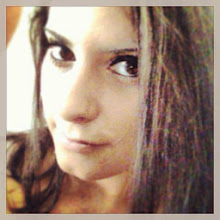Please welcome Leila Sales, author of Mostly Good Girls. The guest post Leila has written is a witty explanation about analogies. Thank you to Yan for setting up this awesome tour! To read my review and enter in a five copy giveaway for Mostly Good Girls, scroll below!
_________________

Leila Sales grew up outside of Boston, Massachusetts, and graduated from the University of Chicago. Now she lives in Brooklyn, New York, and works in the mostly glamorous world of children's book publishing. Leila spends her time thinking about sleeping, kittens, dance parties, and stories that she wants to write. Mostly Good Girls is her first novel.
_________________

Mostly Good Girls by Leila Sales
Reading Level: Young Adult
Release Date: Available Now
Publisher: Simon Pulse
Pages: 368
Reading Level: Young Adult
Release Date: Available Now
Publisher: Simon Pulse
Pages: 368
Summary: The higher you aim, the farther you fall…. It’s Violet’s junior year at the Westfield School. She thought she’d be focusing on getting straight As, editing the lit mag, and figuring out how to talk to boys without choking on her own saliva. Instead, she’s just trying to hold it together in the face of cutthroat academics, her crush’s new girlfriend, and the sense that things are going irreversibly wrong with her best friend, Katie. When Katie starts making choices that Violet can’t even begin to fathom, Violet has no idea how to set things right between them. Westfield girls are trained for success—but how can Violet keep her junior year from being one huge, epic failure?
_________________
Guest Post:
9. ANALOGIES
People are always claiming that writing a book is “like” something else. This intrigues me; I love a well-paced simile. Thus, here is a list of some activities that writing is supposedly “like,” and my opinions on whether or not each comparison makes sense.
BABIES: Writers constantly say things like, “This book is my baby.” Some of them describe their books’ pub dates as “book birthdays.” And they talk about how they are “sending their book out into the world” with the emotion of a mama bird the day her baby bird leaves the nest. It is true that books will wake you up crying in the middle of the night. And it is true that your book embodies part of your genetic code, while still being something wholly outside of your person. But the way that books are most like babies is this: When you create a book, everyone exclaims over it and congratulates you. But half the time, what they’re secretly thinking is, “This doesn’t seem all that special. After all, there are lots of other ones out there, and frankly I could probably make my own, if I tried hard enough.”
The way that books aren’t like babies is that you can’t make a book in only nine months. Well, let me revise that. I have heard R.L. Stine say that he can write a book in two weeks. So I guess what I mean is: I can’t make a book in nine months.
Also, books don’t seem to care about pull toys. At all.
SCULPTURE: I don’t know much about clay work, except that I took a pot-throwing class when I was twelve years old, and so my mother still has a number of lopsided bowls scattered around her living room. But rumor has it that some sculptors view their craft as taking a big lump of clay and then getting rid of every bit that doesn’t belong there, until they’re left with the final sculpture that had been “hiding” in there all along, previously masked by extraneous clay.
This is sort of how I feel about writing and definitely how I feel about revising: The story already exists; I just have to carve away the extra clay (or words) that’s preventing me from seeing it.
COOKING: My writing partner, Rebecca Serle, brought to my attention that people are always like, “Oh, yeah, writers love to cook! It’s that same creative side of them that wants to throw a bunch of ingredients into the mix and see what comes out.” And I guess it’s true that many of my writer friends are also able to turn their creative vision to empanadas. But my own idea of “cooking” is carving off a non-moldy wedge of mozzarella from the cheese that’s been in my fridge since July, and sticking in on a fork with the least wrinkled cherry tomato I can rustle up, and calling it a caprese salad.
READING: On a good day, writing does feel a lot like reading. You, the author, just sit there, thinking, “I can’t wait to find out what happens next!” You’re so fully in the story that you barely notice you’re the one writing it. It seems to exist outside of you.
Those are good days. On every other day, writing is like reading a Choose Your Own Adventure book, except that the choice at the end of every chapter is super-challenging and consequential, and also no one has even told you what your options are.
Your turn! What do you think writing is like?






4 comments:
Thanks for the giveaway! I agree with writing being like reading.
Great post and giveaway! I really feel like writing is a conversation with a group of friends. I listen to how there days went. And I give them advice they sometimes take or don't. Lol. I love it though. It my greatest passion. Thank u for the wonderful post! Ur book looks like a good read. :)
Liz ^_^
Www.vampyrekisses.com
The analogies are fun to read! I agree with a lot of them. :) Everyone has their own analogy for writing. I know I do!
I agree, it's a difficult road like babies and cooking lol. Great post! I'm reading MGG now...loving it :D
Post a Comment
Thank you for leaving a comment, sending you kisses and hugs!! Oops, I am sorry if I slobbered on you. ;)